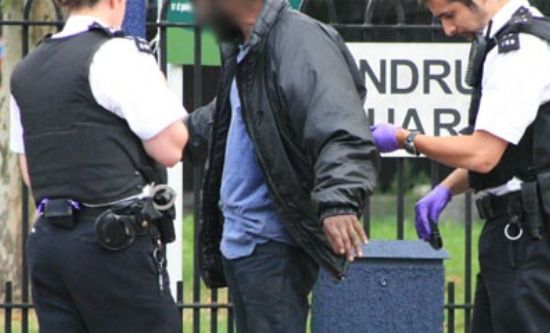
A report by the charity Inquest entitled: ‘I can’t breathe’: Race, death and British policing[i] exposes racist police violence in restraint-related incidents which has led to the disproportionate deaths of black people. The report analyses data from the Independent Office for Police Conduct (IOPC) and Inquest’s own casework to reveal the escalation of force when restraining black people.
The IOPC has been in operation since 2018, when it replaced the discredited IPCC. Like its predecessor, it employs large numbers of former police staff as investigators and the families of the police’s victims frequently find its role to be to cover up for the police, rather than investigate them. In November 2022, the parents of Oladeji Omoshore, who died after being tasered by the Metropolitan Police and falling into the Thames, began legal action against the IOPC for treating the officers involved as witnesses rather than suspects in their son’s death.
Overall, between 2011 and 2021, 52 black people died following police contact. Of the total number of deaths recorded 13% were black people, who are therefore four times more likely to die than the proportion of the population they represent. This is double the disparity acknowledged by the government in its own figures.
This disparity increases further when deaths involving forcible restraint are closely analysed. A July 2021 Home Office report claimed that black people were not ‘more likely to die in cases where force or restraint is used’. However, the Inquest report sharply contradicts this.
The report spotlights the inconsistencies in IOPC data, which excludes the deaths of people not officially detained or arrested – placing them in a category called ‘other deaths following police contact’,’ rather than identifying them as ‘deaths caused by police restraint’.
When all the relevant data is properly considered, the figures show that between 2012/13 and 2020/21 there were 119 deaths involving police restraint. Of these people, 86 were white, 23 black, five Asian and four mixed race. When compared to overall population demographics, the report shows that the percentage of black people within the figures for deaths following restraint is 6.4 times higher than the percentage of black people within the overall population. For white people the comparable figure is 0.84. Combining these figures shows that black people are seven times more likely to die than white people when restraint was involved.
The report also draws attention to the complete lack of accountability within the police force and the role of the IOPC in covering this up. No death of a black person following police custody or contact has led to officers being disciplined for racism, at a conduct or criminal level.
The report concludes: ‘The system of accountability for racism and racial discrimination in deaths of Black people following police contact is not fit for purpose. The police watchdog, inquests and the Crown Prosecution Service have historically failed – and continue to fail – to scrutinise the role that racial stereotyping might have played in these deaths, especially where excessive force is used. The result is that officers are not held accountable; there is no systemic learning and change and more deaths of Black people occur in similar circumstances.’
Reports and analysis such as that carried out by Inquest are important tools in the struggle against police racism and brutality. However, as the report itself recognises, the British police are servants of a racist state, deeply rooted in imperialist oppression. Consequently, no reports or recommendations will render them ‘fit for purpose’. Instead they need to be swept away by a united mass movement against racism and imperialism.
Destinie Sánchez
[i] https://www.inquest.org.uk/police-racism-report-2023 Published 20 February 2023




